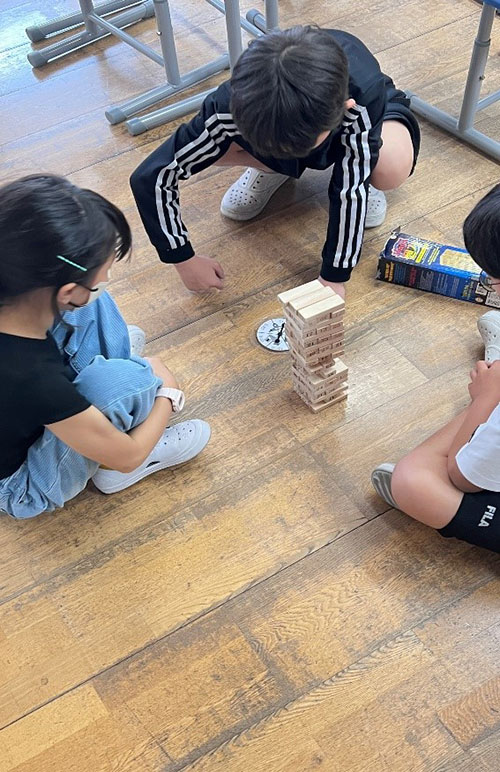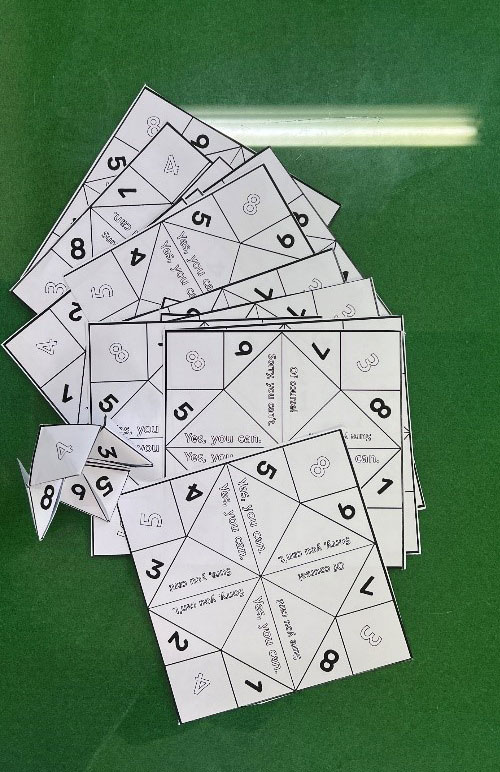-
Reflections on Rewarding Years as an NET in Seoul
Elizabeth Anne MacDonald
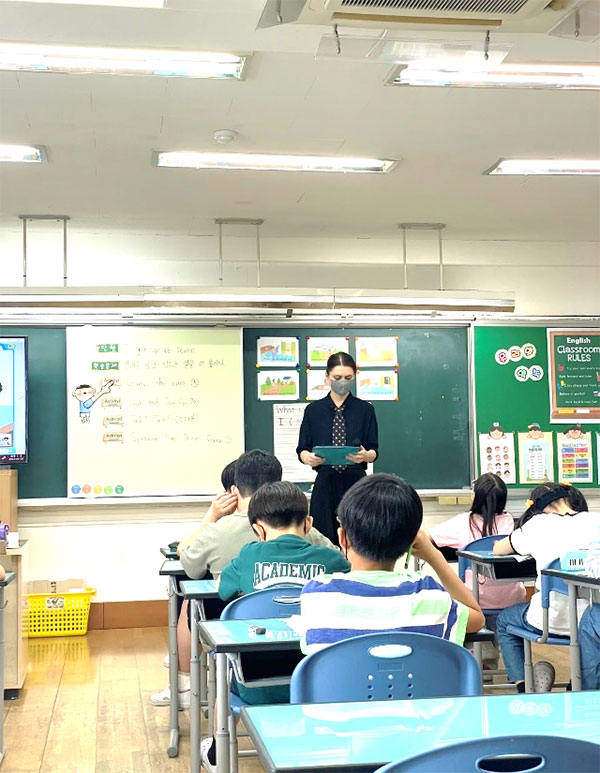 I've been teaching in the context of Korean public-school education for eight years. With each year comes more fine-tuning and happy fulfillment in the pursuit of helping young learners develop their English language skills. This occupation is well-suited to me in many ways; creating interesting and challenging English lessons, presenting this work, and watching students grow in turn, is a process that is now familiar to me. My rewarding longevity within EPIK is a testament to the support the program has offered, and the help and guidance of co-teachers as well. My message to new teachers is this: if you have a spark for life as an educator, keep going, and find the teaching style that suits you best! With trial and error comes much more independence and happiness in school life. Through the support of capable and bright staff at my current elementary school within the SMOE, I am proud to offer students well-balanced, engaging lessons, fortified by the know-how that years of teaching experience brings.
I've been teaching in the context of Korean public-school education for eight years. With each year comes more fine-tuning and happy fulfillment in the pursuit of helping young learners develop their English language skills. This occupation is well-suited to me in many ways; creating interesting and challenging English lessons, presenting this work, and watching students grow in turn, is a process that is now familiar to me. My rewarding longevity within EPIK is a testament to the support the program has offered, and the help and guidance of co-teachers as well. My message to new teachers is this: if you have a spark for life as an educator, keep going, and find the teaching style that suits you best! With trial and error comes much more independence and happiness in school life. Through the support of capable and bright staff at my current elementary school within the SMOE, I am proud to offer students well-balanced, engaging lessons, fortified by the know-how that years of teaching experience brings.
I think my efforts at my current school are felt by my work-place. The leaders of the school offer positive feedback that motivates me to continue to do well. I teach third through sixth graders, and weeks of English camps during vacations. I of course use the national English curriculum to teach listening, speaking, reading, and writing to prepare students for testing situations. However, I also love to create fresh activities that correspond well to this curriculum. Some sections of lessons that students have found extra interesting : participating in a zoom interview call with a new native-speaker friend (my teenage sports star cousin, Grace), playing action-packed team game 'gaga ball' according to English instruction, designing and decorating gingerbread cookies related to vocab in English Camp, using computer tablets to play educational language acquisition games, experiencing a home-made jack-o-lantern for the first time during a culture lesson, etc. I regularly incorporate my family and friends from home into my lessons as well when relevant-they love to be included, and helping students to listen to/understand additional native-speakers broadens students' familiarity with commonly used English grammar and sentence structure. Culture lessons that include their teachers' happy traditions make students feel more connected and engaged overall.
A main goal of mine as a teacher is to create an atmosphere in the classroom that helps and doesn't hinder learning. A classroom that has clear rules, familiar lesson layouts, and a respectful mood, yields students that feel happy and comfortable. This setting sees students who strive to do well. I never want my students to feel discouraged, it's important to help all students to feel involved, no matter their levels. A product of education culture in Korea is the way that students' levels do vary greatly. To accommodate for this, I try to create materials that all students can benefit from, I speak very slowly and annunciate clearly when teaching, and I praise students who have improved according to their own level. Students should feel nurtured and proud of their work when they've had successes, no matter how small these successes may be.
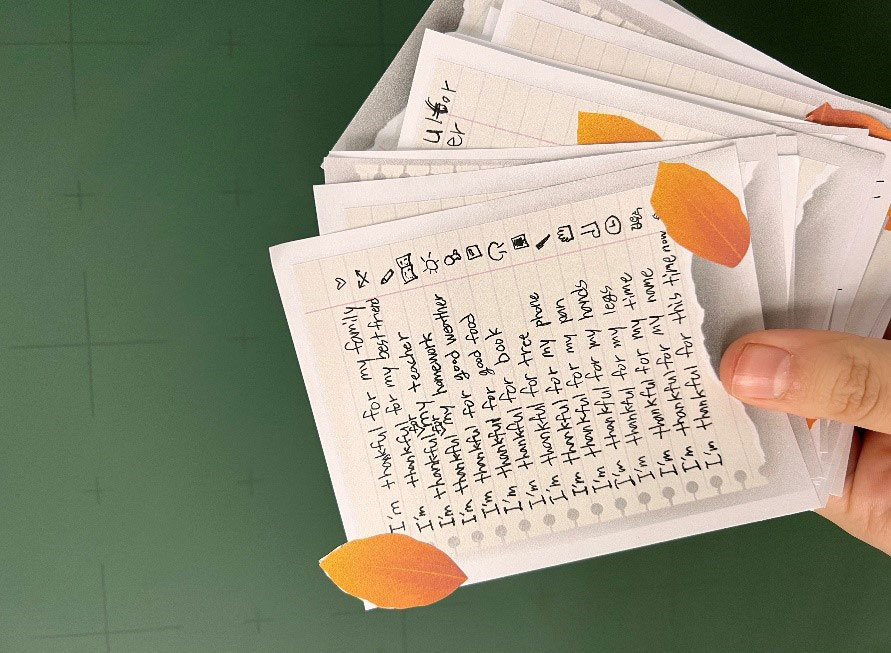
A foundation of academic research assistant work, studying English as my university major, and growing up in a family full of educators, prepared me in part for this job. Nothing prepared me more though than actually being thrown into teaching in Korea! I've taught rural students outside of Gwangju and Daejeon, as well as the big city kids here in Seoul. I've also worked in both middle and elementary level schools. Over time through these experiences I've grown to be a very detail-oriented worker. Downloading mis-matched and sometimes lazy teaching materials online is uninteresting for students. Instead, I make most of my materials. At my school, I'm fortunate to have a well-stocked supplies room to make use of, and co-workers who give great tips that perfect my lessons. We should all aim to provide activities that are challenging, fun, and consistent in design and flow. Moving into this new school year, I look forward to continuing to uphold this standard as part of the EPIK program!
several sections of last season's 30-page English Camp book :
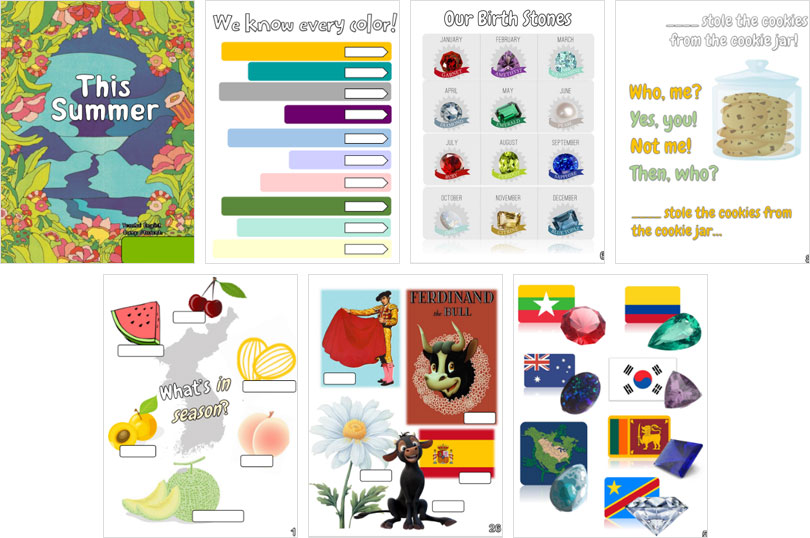
English Program in Korea(EPIK)
National Institute for International Education Ministry of Education, Republic of Korea
191 Jeongjail-ro, Bundang-gu, Seongnam-si, Gyeonggi-do, 13557 Korea Tel : +82-2-3668-1400 Fax: +82-2-764-1328



